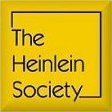|
A Heinlein Concordance created by M. E. Cowan |
|
||
|
From the stories: A
B
C
D
E
F
G
H
I
J
K
L
M
N
O
P
Q
R
S
T
U
V
W
XYZ |
|||
|
A Heinlein Concordance ©2004 M.E.Cowan |


